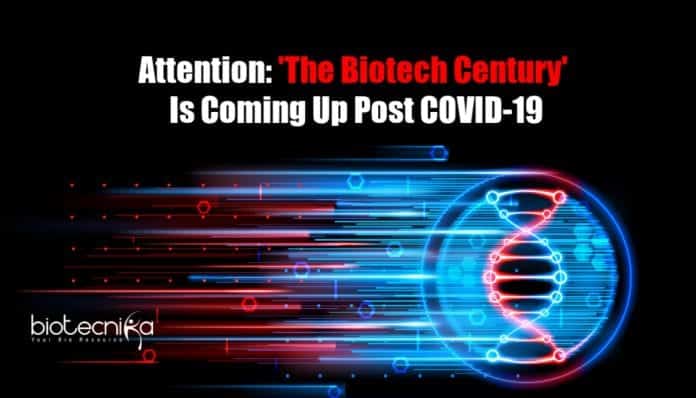Impacts Of Covid-19 In Research
What would you do to prepare if you had known that a deadly disease like Covid-19 is coming? You would have definitely stockpiled ventilators and N95 masks and invested billions or trillions of dollars in biopharma research.
In the United States, government and business agencies have spent more than 2 trillion dollars in health-related research and development since 1995. Since then, a series of medical and scientific successes came, including the taming of HIV, the slow rollout of gene therapies, a cure for hepatitis C, immunotherapy for cancer, and the sequencing of the human genome.
And yet we never succeeded in a deeper understanding of human biology, so that new treatments can be developed cheaper, faster and with minimum failures, which is the real promise of “The Biotech Century.” Instead, the cost of drug development kept rising, with only 14% of drugs getting approved after clinical trials.
Why scientific advances have not led to faster and cheaper drug development and the emergence of a Biotech Century is a topic of debate. The following are the three popular arguments on this matter.
- Medicine is a lot harder and complicated than initially thought.
- Biopharma companies are diverting from the truly essential research and development due to their profit motive.
- Misdirected or excessive regulation could be slowing down biotech innovation.
The third argument is a widely accepted one that well-intentioned government regulations blocked disruptive innovation in the biosciences.
According to Clayton Christensen, the Harvard academic, a disruptive innovation starts out as less capable than existing technologies but, as the innovation evolves, becomes less expensive but more powerful.
For example, the first automobiles costed more than a horse but were less reliable. Similarly, the first personal computers were more like toys compared to the current mainframes and minicomputers. But they evolved to become better and cheaper.
Impacts Of Covid-19 In Research And Regulations
In the 1980s, when the first cellphones were introduced, they were bulky devices that cost $4,000. They were terrible then and could barely fit even in a briefcase. And they had low quality compared to the wired telephones. But today, most of the people have given up telephones in favor of mobile phones.
Government regulatory bodies with demotivate innovation and suffocate the biotech century with ‘too high standards’. Imagine what would have happened if Steve Wozniak and Steve Jobs had to meet government performance standards before they could launch the Apple I.
According to the FDA standards, a drug or medical device should require efficacy and safety and must perform at least just as well as existing alternatives or better and This blocks disruptive innovations.
Even though the regulatory hypothesis is widely accepted, we can’t ignore the other two also. Science is hard.
But since the Covid-19 came into the picture, biotech companies are racing to find a cure. Multiple potential treatments and vaccine candidates are being developed in parallel across the world.
The profit motives and regulatory barriers are falling by the wayside due to the pressure of a global pandemic. Rather than hoarding intellectual property, researchers and companies are sharing it. High levels of risk are being accepted by regulators. For example, the Covid-19 vaccine by Moderna is being tested in human volunteers even before it’s trial in animals, against the usual order.
Under ordinary circumstances, the safety and efficacy of a new drug or medical device need to be assured. But the coronavirus pandemic is forcing us to try things and do what we would never do in ordinary circumstances.
The impact of Covid-19 has brought changes in how research is done. We will learn something important during this unfavorable period. We could know if regulators were right and disruptive innovation is wrong or if medical science has advanced far enough to develop treatments and vaccines for new diseases in very less time than normal.































It is evident that the government has now been focusing on biotechnology for tests and vaccine development to be precise. However how is this going to change the trend of research ? What about funding and working inside a lab? Can students carry out an experiment which might not give fruitful results as per the need of the hour like Mendel died when his work got recognition even though his contributions were revolutionary. Even if a researcher dedicate his whole life but do we have that much independence ?? Students are they inspired to contribute for science or should they be more focused towards sustaining a minimal standard of life ??